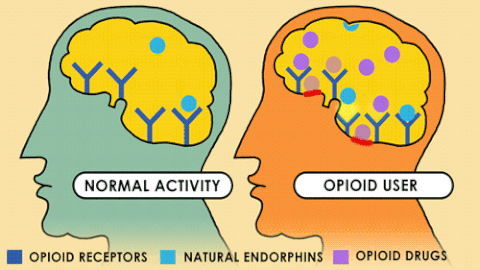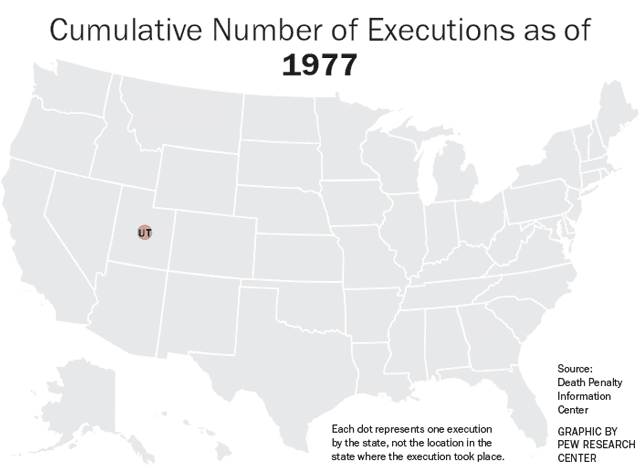The Government Can Do More To Stop Human Trafficking
Are there effective laws to help combat human trafficking in the United States?
Slavery hides within many places in the modern world, including developed countries. Many adults and children are victims of human trafficking in the United States, but just how much is the government involved with extinguishing the issue? Mark P. Lagon and Laila Mickelwait wrote, "The U.S. Government Turns a Blind Eye to Policies That Fuel Sex Trafficking," to convey how they believe that there are currently ineffective laws to combat human trafficking in the United States. On the other hand, Alex Trouteaud wrote, "Anti-human Trafficking Laws Have Made Great Progress," in order to express his views on how he believes that there are enough effective laws in the United States to combat human trafficking. Although their views may differ when it comes to the amount of effective legislation in America in combatting against human trafficking, they reach common ground through one aspect: human trafficking grows with the demand for commercial sex.
To begin, Mark P. Lagon and Laila Mickelwait contend that the government's legislation is not effective in combatting human trafficking. Lagon and Mickelwait express that "year after year, the department sidesteps the most critical aspect" (Langon and Mickelwait 1) of setting sustainable efforts in eliminating the trafficking issue. They claim that although there are laws in place for the purpose of abolishing the issue, "it seems the department doesn't want to ruffle feathers by turning words into action" (Langon and Mickelwait 1).
The authors analyze the Trafficking Victims Protection Act and express that their law is outdated in their methods of reducing sex trafficking crimes because they do not assess sex consuming laws. They argue that "it is high time to stop saying "boys will be boys" and recognize that abolishing sex trafficking requires placing the stigma on the purchaser rather than the commodified women and girls they buy" (Langon and Mickelwait 1).
In other words, they believe that even when the government recognizes the problem, they are not taking enough action to help prevent sex trafficking culture from growing because the negative connotation has been placed on the victims, rather than the traffickers. Their argument in this context appeals to government and legislation because it gives insight over how some people may feel over current human trafficking legislation.
In contrast to Lagon and Mickelwait's article, Alex Trouteaud stands in disagreement with the claim that human trafficking legislation in the United States is not effective. Trouteaud, as a "Director of Policy and Research for Demand Abolition, an organization that fights to combat the illegal commercial sex industry in the U.S.," (Trouteaud 2) notices that the government is taking the necessary action to improve human trafficking legislation. Thus, throughout his argument, he says that "members of Congress… are writing smarter laws that address the problem at its roots" (Trouteaud 1). Traditional laws have not effectively addressed the human trafficking issue because they have not targeted the root of the problem. But, because Congress identified the source, they have since updated their policy. According to Trouteaud, the government established The Empowering Law Enforcement to Fight Sex Trafficking Demand Act to help fund operations that seize traffickers. In addition, he claims that they have implemented the Trafficking Victims Protection Act to prevent the demand for sex from women and children from rising. To Trouteaud, he believes that only when Congress had updated their policies by holding commercial sex buyers accountable for their actions, have the human trafficking laws been most effective. Therefore, in this context, his argument gives insight to those who feel as if human trafficking laws are ineffective.
Despite the differing views between Lagon and Mickelwait's claim, and Trouteau's views on whether or not human trafficking laws are effective, there is common ground. Both sides have identified the main source of the growing sex trafficking culture, which is due to the high demand for commercial sex. Lagon and Mickelwait use an economic theory of supply and demand by stating that "when a country allows for the legal purchase of sex, demand increases, as does the supply of women and girls needed to meet that demand" (Lagon and Mickelwait 1). Lagon and Mickelwait have been appalled by the results, and state a call to action for the government to recognize the root of the problem. Furthermore, Trouteaud stated that "high frequency buyers, who purchase sex dozens of times each year, are responsible for three of every four transactions in the illegal sex trade" (Trouteaud 1). Trouteaud has identified that the government has found the root of the human trafficking problem, similar to what Lagon and Mickelwait have identified. By both authors holding the same supply and demand theory, and attitude over the identification of the root of the problem, a common ground is reached.
Although Lagon and Mickelwait's views and Trousseau's claim prove to be opposing ends of the human trafficking legislation argument, a compromise can be reached. Since the concerns between both sides address the effectiveness of the human trafficking legislation and are within the same vicinity, which is over the concern of the effectiveness of the law, a solution can be made. The concerns between both sides may be addressed if they are willing to listen to the opposing point of view. In that way, they may find that because both sides agree in the common root of the sex trafficking issue, people in the United States can continue to push for more effective legislation that targets the problem of the high demand for commercial sex.
Thus, the government can pass more effective bills to create better laws for combatting human trafficking and ultimately, protect those who are most vulnerable as victims.
Works Cited
Lagon, Mark P., and Laila Mickelwait. "The U.S. Government Turns a Blind Eye to Policies
That Fuel Sex Trafficking." The Washington Post, WP Company, 1 Feb. 2016, www.washingtonpost.com/opinions/the-us-government-.... Accessed 15 Mar. 2019
Trouteaud, Alex. "Anti-Trafficking Laws Have Made Great Progress." TheHill, 17 Aug. 2017,
thehill.com/blogs/pundits-blog/crime/346642-anti-trafficking-laws-have-made-great-progress. Accessed 13 Mar. 2019


















































